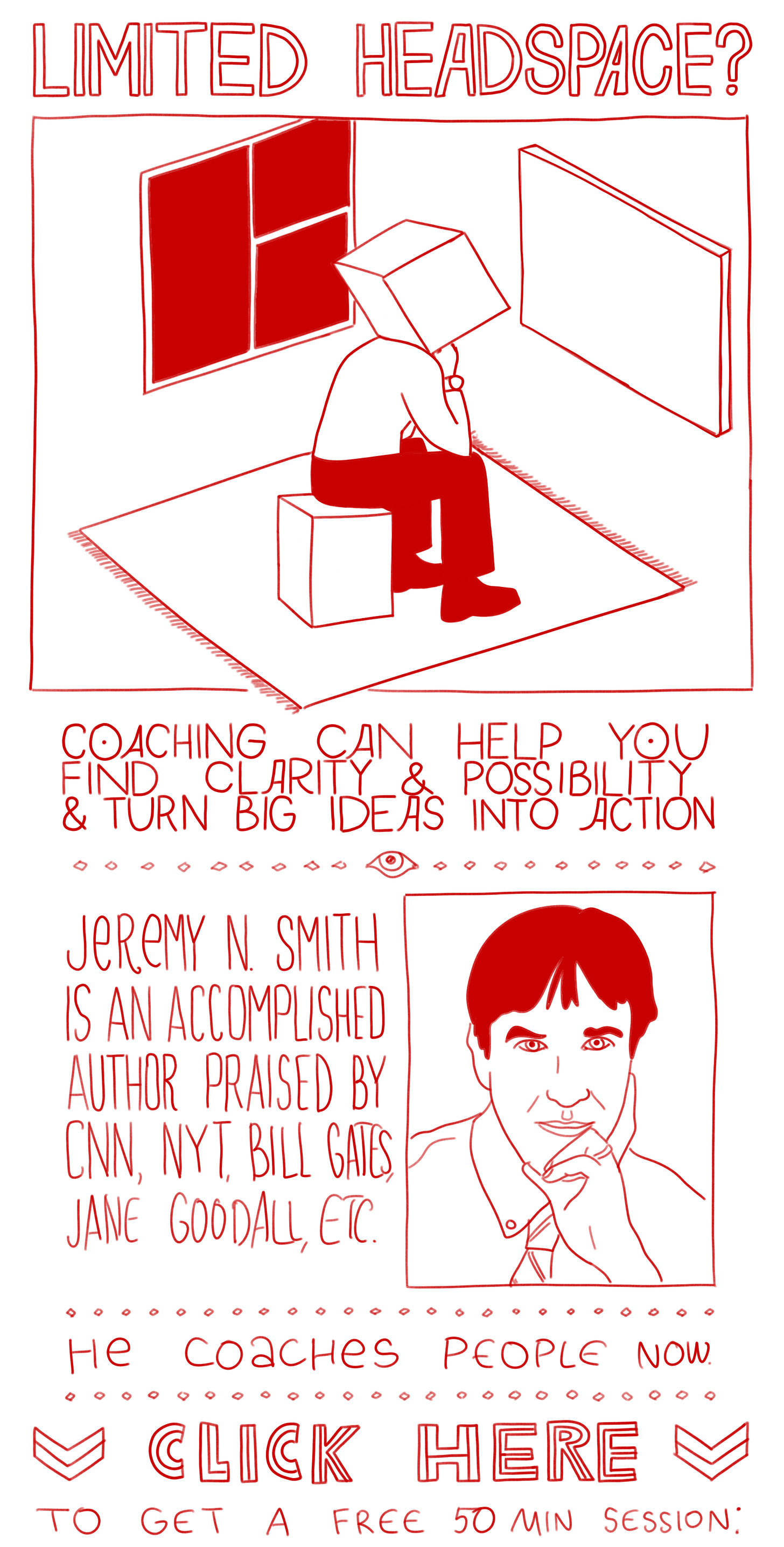I’m trying a new format for organizing my creative process. I started making “idea cards”:
On the front is a visual representation of an idea, and on the back, a concise description and proposed way of expression. It’s a great exercise that forces clarity of thought on the one hand and engaging visual imagination on the other.
They’re also fun to do.
Here’s one from today:
This is based on a conversation I had with a pilot from Fly Dubai a couple months back. He said that the job is all about seeing things clearly, managing risks, staying calm under stress, skillful communication, adjusting for the crew’s mental state, and, above all, keeping the ego in check. “I’ve never been anything but a pilot, so I don’t know if it’s job-specific or how everything works, but it’s all about the ego.”
He sounded like a Scientologist or a student of psychedelics talking about “it’s all in your mind, man” — except that he was describing, pretty concretely, the nuts and bolts of a very practical task.
In his estimation, the actual skill of flying a plane is not hard to master, and 80% of one’s flights are straightforward and easy, like driving to work; but in 20%, something goes wrong, and maybe the crew is tired, and the weather is neither here nor there — kinda shit but nothing you haven’t seen before, so it’s not obvious that you should do another circle before landing, but neither it is obvious that you should not — and so you’re estimating risks and probabilities, and many factors are pressuring you see the circumstance as better than it actually is:
e.g., by this time, you’ve already made a sequence of decisions that logically lead to the next one being to land, so deciding to play it safe at the end would look inconsistent;
and you’ve done this before many times, so why should you doubt yourself;
and you know that every extra minute in the air costs money;
and everybody wants this long flight to be over so that they could go home and hug their loved ones and sleep;
and maybe you are a little stressed out and you kind of forget that stressing out is counter-productive so you allow stress levels to keep increasing —
and so a sort of a psychological storm is brewing, which is much trickier to navigate than the ones outside of the craft. Small things add up and lead to last-minute mistakes that in turn lead to deadly accidents.
I liked this image of a pilot as psychonaut and have been wondering if I can do something with it.
Well, now I’ve got these idea cards — so I made an idea card.
I plan to work it into a couple of fiction projects which a sci-fi bent that I’m working on. The deadline for one is New Year’s Eve, so I should be able to share it with you soon.
Merry Christmas,
Nikita
Classifieds
Jeremy N. Smith is a very accomplished coach, creative consultant, and writer acclaimed by CNN, the New York Times, Bill Gates, and Jane Goodall, among others.
He offers a complimentary coaching session to any PsyPol subscriber.








First, the timing of this post is interesting because I had a dream about you last night, Nikita.
I have NEVER dreamt about somebody I know only through the internet before, and I've never even "met" with you there! In this dream I saw you in person from a few feet away and didn't introduce myself because I was speechless to see that you were a child! (Maybe about age 10). I don't need an expert in dreams to tell me this signified how creative I think you are! This post is truly another example of that. "Mushroom-based computers" made me laugh out loud! The pilot's insights reminded me of a book I read years ago, "The Checklist Manifesto" by surgeon Atul Gawande. It described how surgeons decided to copy the aviation industry and put together a checklist of tasks to follow to avoid making mistakes. Research demonstrated it was effective in preventing death, but many surgeons resisted using it because they saw themselves as godlike and not a mere mortal who needs to follow a checklist. Per the article on this topic below, "...heroes today are perceived as daring audacious experts rather than those who accept the virtues of regimentation afforded by checklists. We do not like checklists because they are painstaking, lazy, embarrassing and run counter to our beliefs that the truly great are daring improvisers who shun protocols and checklists." Maybe we can assign the checklist tasks to the computer but perhaps they shouldn't be on any mushrooms then! Or maybe we need to put "check ego" #1 on the list!
https://pmc.ncbi.nlm.nih.gov/articles/PMC4953332/